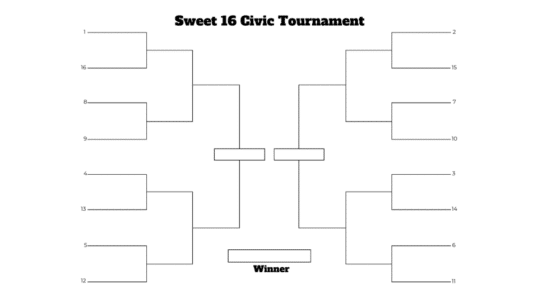One of IF’s ongoing tasks is to find the most useful scale and tone for the possibilities in its reports. While we have learned a great deal about how to present possibilities and discuss them, we are still grappling with a number of questions about the relation of our work product to our goal of citizen discussion.
We have a sense that we want something more tangible than broad ways of thinking about a policy area and something less specific and detailed than one might find at the governmental level. The whole point is to stimulate discussion so that citizens have some contrasting starting points that get their civic juices flowing and, perhaps, prompt some thinking beyond the possibilities mentioned in our reports.
It is almost a given that there is no one right way to accomplish these conversation-starter tasks. Do we want citizens to think totally outside the box? Do we chiefly want this to be an imaginative exercise wherein they can reinvent society according to different visions? Or do we want practical possibilities that might aid organizational development and systems design in the here and now?
In answering these questions for myself I go back to the idea that we are providing starting points for discussion. It might be better to think in terms of pump-priming or even accelerant than concrete policy options. In that view, might not a rather fanciful, but provocative, possibility serve as a better stimulant to citizen discussion than the more obvious elements of conventional wisdom?
It may also be helpful to consider our efforts in light of our current civic malaise where what seems “possible” is so shrunken and pitiful that is almost embarrassing to realize that we are a nation that produced great movements for the abolition of slavery, worker’s rights, civil rights, and environmental protection. In such cases rigid and unyielding conventional wisdom (sometimes backed by legal institutions and armed force) made some visions seem impossible. Yet is it not possible to look back and find those who imagined different possibilities and think of them as visionaries and heroes?
Possibilities can unleash the wisdom of the citizenry and allow the unimaginable to become quite imaginable and imperative. And they can later seem so obvious that today we can wonder what all the fuss was about.
Still, there is a role for sorting out different citizen discussion tracks that deal more with the short-term and the practical. Some citizens may want to envision a different society and others may want to focus on thinking about transit and land use in a particular community now. And there may be ways for the needs and desire of one constituency to mesh with the other.
So it is entirely possible that our possibilities will need to be matched to specific discussion settings and groups. Our possibilities may need to be calibrated in some settings, contrasting as apples and oranges in others, and as asymmetrical as apples, wrenches, and goats in yet others. In the citizen discussion environment we will come to know the answer to these questions only through more practice and citizen feedback.



